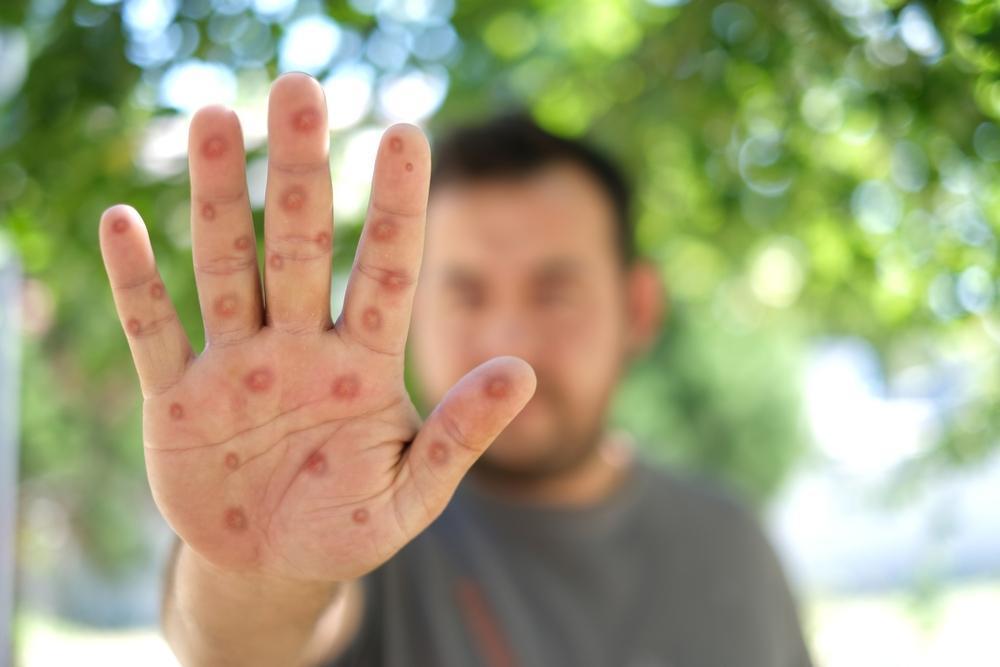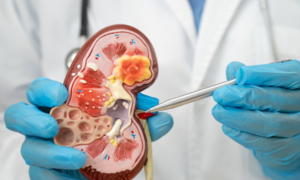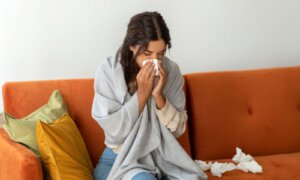The recent monkeypox (Mpox) outbreak in Africa has been called a global public health emergency. Dr. Lin Xiaoxu, a virology expert and former lab director of the viral disease branch at the Walter Reed Army Institute of Research, explained the symptoms of Mpox infection and paths of transmission on the Epoch Times’ “Health 1+1” program.
New Surge in Africa Draws Renewed Attention
The World Health Organization (WHO) on Aug. 14 declared that the surge in Mpox cases constituted a public health emergency of international concern. The last such warning was made in July 2022 and ended in May 2023 as global cases continued to drop.
The news release mentioned that in 2023, a new virus strain, clade 1b, appeared in Congo and has spread rapidly since then, causing a significant increase in Mpox cases. As of July 2024, more than 100 cases of the new virus strain were reported in four neighboring countries around Congo, namely Burundi, Kenya, Rwanda, and Uganda.
According to the latest figures, as of Sept. 8, a total of 3,900 confirmed cases, including 32 deaths, were reported in 15 African countries this year. Democratic Republic of the Congo (5,160 cases), Burundi (385 cases), and Nigeria (55 cases) are the three most affected countries.
Globally, 36 countries reported cases in July this year, and the number of new cases increased by 11.3 percent month-on-month. Most of them came from Africa (54.3 percent) and the Americas (23.1 percent).
Since Jan. 1, 2022, the top 10 countries with the highest number of confirmed Mpox cases are the United States (33,556 cases), Brazil (11,841 cases), Spain (8,104 cases), Congo (4,395 cases), France (4,283), Colombia (4,256), Mexico (4,132), the United Kingdom (4,018), Peru (3,939) and Germany (3,886). They account for 80 percent of all globally reported cases.
Mpox Symptoms
Lin said that Mpox has symptoms similar to smallpox and can be said to be a “mild form of smallpox.” Its main symptoms include rash, fever, headache, back pain, muscle aches, sore throat, swollen lymph nodes, fatigue, etc. It is not difficult to diagnose one’s infection by identifying whether papules and blisters appear on exposed parts of the body, such as the face and hands, he said.
Once it gets severe, Mpox can cause damage to the nervous system, meningitis, and conjunctivitis, among other conditions. Lin said that most cases that progress from severe to death are due to the patient’s immunity deficiency, which allows the virus to spread faster.
However, the initial stages of Mpox are not that noticeable. Lin added that because the incubation period of the Mpox virus can last 21 days, patients might not be aware of it and thus not stop behaviors that could easily spread the virus during the early stage of infection. For example, those who are sexually active are more likely to spread the virus to their partners.
Males Account for More Than 90 Percent of Cases
According to data presented to the WHO, as of July 31 about 90,000 cases of Mpox found that 96.4 percent of the patients are male, and 79.3 percent of them are between 18 and 44 years old. Of the approximately 35,000 cases with information on sexual orientation, 85.5 percent of the cases were male gay people.
Lin explained that Mpox is spread mainly through sexual intercourse, especially between men. Such sexual behaviors can cause damage to the sexual organs and make it easier for the virus to invade, thus causing infection. In addition, the Mpox virus can also be transmitted through other means of contact. The clothes, sheets, towels, and tableware of Mpox patients can also transmit the virus, thus making medical staff vulnerable to its infection when caring for patients.
Ways to Prevent Spread of Mpox
The WHO
indicates that most people with Mpox should recover within two to four weeks. During that period, patients are advised to take the following steps to relieve symptoms and avoid infecting others:
- Stay in isolation at home, in a well-ventilated room, or a hospital when necessary.
- Wash hands frequently with soap or hand sanitizer, especially before and after touching any wounds.
- Keep your skin dry and uncovered when alone.
- Wear a mask and cover the affected area when you are with other people until the rash heals.
- Avoid touching items in shared spaces and disinfect shared spaces frequently.
- Rinse oral ulcers with salt water.
- Treat body ulcers by taking warm baths with baking soda or Epsom salts.
How to Prevent Infection
- Using condoms during sexual intercourse is useful to reduce the chance of Mpox infection but cannot prevent the spread caused by skin-to-skin or oral-skin contact.
- If you have been in contact with an Mpox patient, self-monitor for 21 days for symptoms of infection. During this period, take special care with your contact with others, such as avoiding sexual contact.
- Medical staff should wear appropriate personal protective gear and follow safety procedures when caring for Mpox patients.



















